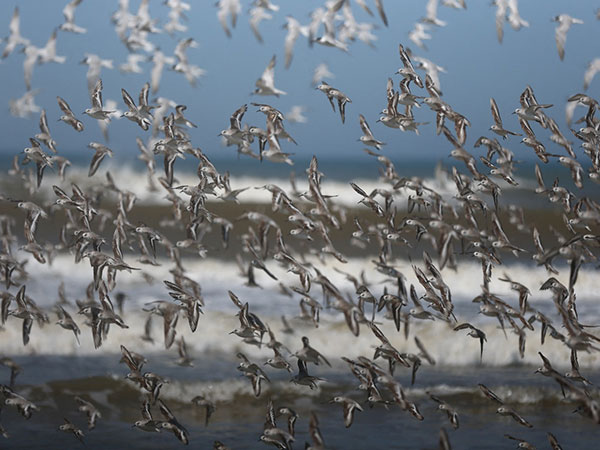Experts have issued a warning about a potential bird flu pandemic that could be “100 times worse than COVID,” after the detection of the H5N1 strain of avian influenza in a person from Texas who had contact with infected dairy cows.
The spread of bird flu is a serious concern for governments and the poultry industry due to the risk of human transmission and potential devastation it could cause to flocks.
Though the number of bird flu outbreaks have been fewer this season, it has spread fast, reaching Antarctica and infecting an increasing number of mammals. This has raised concerns about its evolution into a more significant threat to humans.
Presently, no sustained human-to-human transmission has been observed, with transmission from infected animals to humans being rare. However, as bird flu viruses continue to evolve globally, and with the migration of birds, new strains carrying potential mutations for mammalian adaptation could emerge, according to the European Food Safety Authority (EFSA).
Suresh Kuchipudi, a bird flu researcher from Pittsburgh, emphasised the long-standing pandemic threat posed by the H5N1 virus, which has shown the ability to infect various mammalian hosts, including humans.
John Fulton, a pharmaceutical industry consultant, expressed concerns about the virus potentially causing a pandemic. “This appears to be 100 times worse than COVID or it could be if it mutates and maintains its high case fatality rate,” he said.
The symptoms of bird flu are similar to those of other flu strains, including cough, body aches, and fever, with severe cases leading to life-threatening pneumonia. The recent case in Texas involved a dairy worker with “eye redness (consistent with conjunctivitis)” as the only symptom, according to the Centers for Disease Control and Prevention (CDC).
While the risk to the general public is currently considered low, the detection of the virus in cattle indicates a potential mutation that could increase transmissibility to humans. Efforts are underway to develop a vaccine for the virus, with two candidate vaccine viruses showing promise in protecting against H5N1.
Around 52% of humans who have contracted H5N1 since 2003 have died, according to the World Health Organization
(With agency inputs)




















